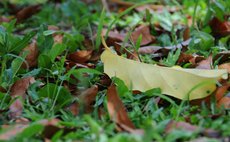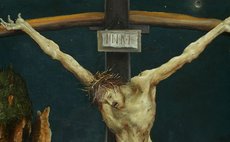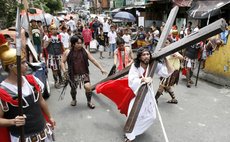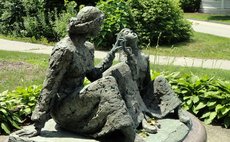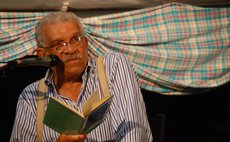The Dominica Grammar School
On the occasion of the 120th anniversary of the Dominica Grammar School, it is good that some reflection be made. After all, that School has made a tremendous contribution to the development of Dominica and the enhancement of the lives of its citizens.
I entered the portals of the Dominica Grammar in January, 1944. Form II, to which all entrants were assigned, consisted of Willard Rolle, Clement Johnson, former President Crispin Sorhaindo, Milton Bertrand, Sheridan Lewis, N.A.N. Ducreay, Philbert Thomas, Masterwelle Doctrove, Clement Jolly, and three months later, my brother, Cuthbert Jolly. There were 48 boys at the School.
The Masters were the Headmaster, Mr. William Grason, an Englishman, Mr. N.A. Jeffers, Mr. Eric Watty (Sports Master), Mr. Peter Boyd, succeeded by Dr. Thomas Henderson, Mr. Brewster of Barbados, the French Master, who was later succeeded by Mr. J.C. Bruney. In 1950, Mr. Victor A. Archer of St. Lucia was appointed Headmaster. The School was then located on the spot where now exists the All Saints Medical School. On the compound there was a playground, a Chemistry Laboratory, a workshop, toilet facilities and the unforgettable tamarind trees.
The subjects taught at the D.G.S. were English, English Literature, Latin, French, General Science (Botany, Biology and Physics), History, Mathematics, Geography. At one time, there were classes in woodwork and drawing. Spanish classes were available but outside of the School curriculum.
There was weekly military drill for all students. There was the Cadet Corps. Athletics, Cricket and Football were constitutive elements of human formation at the School, bearing in mind the School's Motto, "Mens Sana in Corpore Sano" (A Sound Mind in a Sound Body). In my estimation, History and Literature are indispensable for human formation. These two disciplines, more than any other, are related to life. It was at the Dominica Grammar School that Mr. Jeffers taught me to love these two subjects, which have meant so much to me as a human person. Mr. Victor Archer was also a great lover of Literature. Prominent at the D.G.S. was the School Library.
Towards the end of my school career, a few of us, students, formed a Literary Club. Among the members were Emile George, Rev. Dr. William Watty, Charles Maynard, Clement Jolly, Cuthbert Jolly, Randolph Williams, Eustace Royer, former President Crispin Sorhaindo. Mr. Leopold Charles and Mrs. Lorna Robinson (née Grell) were our patrons.
In those days, to be a student at the D.G.S. was something to make one experience tremendous pride. It was not only because of the few students at the School and the distinguishing features of wearing the School hat-band and the School tie. The important fact is that the School had a history. I heard much of the renowned student, Telford Georges, and F.O.C. Harris (nicknamed Cosy). There was Rev. Dr. Philip Potter, who became world-famous. Dr. Lawrence Charles, brother of Dame Eugenia Charles, also became a world figure. These were people whom we needed to emulate. They were truly role-models.
During my stay at the D.G.S., there were distinguished students, such as Dr. Chapman Boyd, Dr. Dorian Shillingford, Mr. Emile George, Dr. Bernard Sorhaindo, all Island Scholarship winners, Mr. Elwood Sinson, Leonard James, Mr. Randolph Williams, former Presidents Crispin Sorhaindo, Vernon Shaw and Nicholas Liverpool. Additionally, Mr. Emile George, was perhaps one of the most brilliant public speakers the D.G.S has produced. Discipline was an indispensable component of academic formation. There was no way to escape it. In those days, the headmaster had full control of the School. There was no challenge to his authority.
Among my most memorable experiences at the Dominica Grammar School was what we called Speech Night, usually at the Anglican Imray School-Room. In those days, we did not have Graduation ceremonies. Speeches were delivered, Cambridge School certificates were distributed, prizes were awarded in various subjects. The ceremony ended with a dramatic performance by students. Students, like Francis Toulon, Emile George and Ronald Didier were particularly outstanding.
Annual Athletics competition was an event never to forget. The students were divided into Set A and Set B. Excellence was the watchword. Prizes were awarded. There was a Shield for the winning Set. Among distinguished athletes were Hurby Charles, Winifred Julien, Russell Winston, Archbishop Kelvin Felix, Eustace Royer and Milton Bertrand. In Cricket and Football, the School was represented in the Island competition. Prominent among participants were Justice Albert Matthew, Hurby Charles and Hague Didier.
In those days, there was a very active Alumni Association. They then formed what was known as the "Old Boys' Association". They helped ostensibly with organization of Sports activities. They were particularly prominent when the D.G.S. competed in the Windward Islands Sports tournament. People, like Mr. Ninian Royer, come to mind in that regard. The Dominica Grammar School recalls to me the thrill and agony of examinations, the joy and pain of human encounter, the experience of success and failure, the strengths and weaknesses of human capability, the joys and sorrows of discipline. School is a microcosm of the life of man. It is an indispensable preparation for facing the challenges of the world in which we live.
This article is already very long. I shall end by exhorting the Staff and Students to build "on the old School spirit" as the D.G.S. School Song, written by Mr. Emile George, puts it. In any endeavour, history must be harnessed to provide inspiration. Man is an existential being. He must be aware of the past if he is to recognize his dignity in the present and build for the future. The Dominica Grammar School has had a glorious past. May the present generation bear the torch of progress, embellish it and hand it on glowingly to the next generation.
